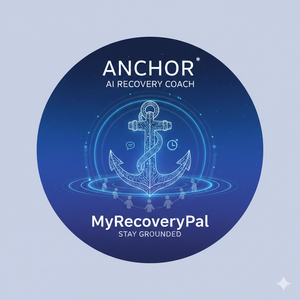
Why Letting Go of Pride and Powerlessness Is Your Fast-Track to Lasting Change
The Relapse Statistic No One Talks About
Did you know that 40–60% of people treated for substance use disorders relapse within a year?¹ This sobering reality shows that willpower and information alone often aren’t enough. What truly sets lasting recovery apart is surrender — that moment when we admit we’re lost, lay down our pride, and reach out for real help.
Surrender: Your Ticket to a New Life
“When all hope is lost, then it is time to surrender to begin a new life.”
Far too many of us believe surrender is weakness. We coast through programs or therapy sessions like spectators in a theater lobby — attending but never fully showing up. As the reading reminds us,
“Without surrender, we never work the program. At best, we just attend meetings. It’s like going to the movie theatre and just staying in the lobby; we never get to see the show.”
But recovery — whether from addiction, trauma, or unhealthy habits — requires active participation. Surrender is the doorway from passive observation into the heart of the work.
Why Surrender Isn’t “Giving Up”
- Acknowledging Powerlessness: Real change begins when we own that we can’t do it all ourselves.
- Reaching for Support: Only by setting pride aside can we connect with therapists, coaches, sponsors, or faith communities.
- Taking Meaningful Action: Surrender moves us from simply following instructions to living our recovery every day.
My Take: Practicing Surrender Every Day
I used to wait for that all-or-nothing “rock bottom” before admitting defeat. This reading taught me instead to invite surrender before crisis hits:
“As we get better at surrendering our issues… we learn we don’t have to wait until all hope is lost.”
Here’s how I’ve woven surrender into daily life:
Morning Check-In:
- Quote: “Surrender is a wonderful thing. The act of admitting we are lost allows us to seek help…”
- Practice: Before breakfast, I whisper, “I can’t do this alone today,” and ask my chosen support — be it a coach, friend, or Higher Power — for guidance.
Midday Reality Pause:
- Quote: “…if we can keep our pride at bay.”
- Practice: At lunchtime, I admit one challenge I’m facing and send a quick text to a peer or mentor — no shame, just “I could use your perspective.”
Evening Reflection & Release:
- Quote: “We are basically greedy; we want the relief and solutions that lie on the other side.”
- Practice: I journal one worry, write “I surrender this” at the top, and note the relief I feel just by letting it go.
Applying Surrender to Your Daily Life
- Invite Surrender Early: You don’t need a crisis. Each morning, own your limits and open yourself to guidance — whether from a therapist, sponsor, or personal spiritual practice.
- Lean on Your Network: Surrendering to others — your support group, counselor, or trusted friend — breaks isolation and builds accountability.
- Celebrate Each Let-Go: Every time you ask for help or admit a struggle, you’ve won a small but vital victory. Track these wins to see your progress.
Step into the Theater of Real Change
Recovery isn’t about lurking in the lobby — it’s about embracing the main event of transformation. When you surrender your need to control, reach for help, and actively engage in your own healing, you stop waiting for miracles and become your own catalyst for change.
Ready to see the show? Clap if you’re stepping forward, comment the surrender step you’ll take today, and follow Normalize Sobriety for more insights on living boldly in recovery.
¹ National Institute on Drug Abuse (NIDA). “Principles of Drug Addiction Treatment: A Research-Based Guide.”


Comments (0)
Login to leave a comment.
No comments yet. Be the first to share your thoughts!